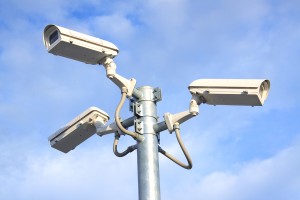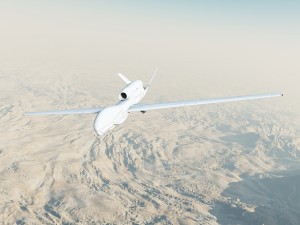Law Enforcement Surveillance: How Much is Too Much?

It’s pretty easy for most people to dismiss law enforcement surveillance as something that they will never have to worry about because they aren’t involved in anything illegal, but is it all beginning to become too much?
This is a question that an increasing number of people are beginning to ask for a number of reasons and we’ll explore just why this is an issue that might raise some alarms. Keep reading to learn more about what’s happening in our world when it comes to law enforcement surveillance and you’ll have your chance to weigh in at the end.
The Who, What, and Why of Law Enforcement Surveillance
 Keeping an eye on the public is a lot more sophisticated than having a few security cameras on public streets thanks to advances in technology over the past few years. From the full body scanners now in place at certain airports to drones flying over US cities, the belief is that these technologies will be used to keep people safe, but the implication is that this is an invasion of privacy that will erode freedoms that people have enjoyed for decades.
Keeping an eye on the public is a lot more sophisticated than having a few security cameras on public streets thanks to advances in technology over the past few years. From the full body scanners now in place at certain airports to drones flying over US cities, the belief is that these technologies will be used to keep people safe, but the implication is that this is an invasion of privacy that will erode freedoms that people have enjoyed for decades.
Why is this all being done?
Who benefits from all of this?
Authorities would have you believe that this is something the benefits the people above all else.
How?
- Security cameras will decrease the chances of break-ins
- Speed and red light cameras can be used to catch traffic violators without an actual police presence
- Airport scanners can be used to keep people from carrying weapons onto airplanes
- Unmanned aircraft can be used to locate criminal suspects
- Warrantless wiretapping can be used to identify, track, and eventually apprehend terror suspects
All of these arguments are used as justification for an increase in surveillance that has been seen in the past decade, but where does it ultimately all lead?
This a question that privacy advocates and people who worry about abuse have asked and will continue to ask as surveillance becomes more prevalent in our society. It’s not hard to see how the increase in law enforcement surveillance and other practices that circumvent privacy might lead to a classic slippery slope argument, but it would also make sense to question why this is happening.
There is a legitimate need to address some of the issues in the above scenarios, but is it all necessary to the extent that it has gone?
That’s the question that comes up when talking about the measures that many people see as needlessly invasive and a violation of rights.
It’s no question that behind all of these new laws techniques of police surveillance, there is money to be made and power to be expanded. From traffic cameras that are able to catch and cite speeders/red light runners without an officer present to wiretapping technology that can more easily scan a phone network and allow authorities to pick up on potential criminal activity, the ability to do good is there.
Still you have to help but think about the classic saying of “give them an inch and they’ll take a mile.”
With law enforcement surveillance, using a new technology to catch a few people could eventually lead to the justification it could work in other areas, thus leading to a spread of the range in which these techniques and technologies are used.
From that point, it’s not hard to imagine cameras on every corner, eyes in the skies at all times, and someone listening in as you make a phone call.
This is all an exaggeration right now, but trends could certainly head in that direction.
As law enforcement surveillance increases and the people responsible for the technology behind these methods of surveillance lobby for more widespread use of the tools that they provide, it’s not hard to imagine that Orwellian future where everything we do is watched and penalized, and every word we breathed is listened in on?
Is it too much?
Is it for the right reasons?
What are your theories?
